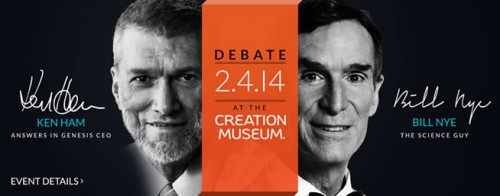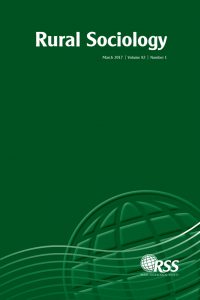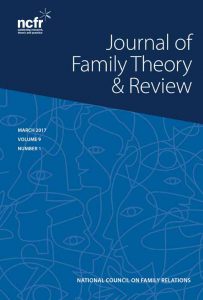A look at the ‘Religion versus Science’ debate through a sociological lens
Recent, high-profile debates between representatives of religion and science show this rivalry is as hot as ever. Yet, despite Richard Dawkins’ fantasies, science will never eliminate religion. A Foucauldian analysis tells us why.
Each society, according to Foucault, has its “régime of truth”:
“Its ‘general polities’ of truth: that is, the types of discourse which it accepts and makes function as true; the mechanisms and instances which enable one to distinguish true and false statements, the means by which each is sanctioned; the techniques and procedures accorded value in the acquisition of truth; the status of those who are charged with saying what counts as true.” (Foucault, 1977, p131).
In pre-Reformation Europe religion was the régime of truth; religious power was sustained by rendering the words of divinity (religious scripture) esoteric; they were in the custody of powerful institutions and kept unknowable to the laity. Only clergy; authorised persons, could reveal its unquestionable truths. Originally, Western science arose not in opposition to this religious discourse but from within it. As Nietzsche observed, science was driven to an extent by the Christian impulse to reveal the ‘truth’. Pioneers of the Scientific Revolution were pious men who thought that they were performing God’s work by revealing the laws that He had established in nature. However, this initiated the process of science of laying claim to the truth. Scientists “delimitated” the natural world; transformed it into a “field of objects” for scientific enquiry and emerged from the Enlightenment as “agents of knowledge”(Foucault, 1978a, p199). Eventually, science became the “legitimate perspective” for anyone intent on understanding the natural world (p199). It “claimed a domain of normativity for itself (according to what criteria one may exclude certain statements as being irrelevant to the discourse, or as inessential and marginal: non-scientific) and it “constituted a domain of actuality for itself” (Foucault, 1972, p61): certain criteria had be met before “a statement qualified as scientific statement” (p61).
Gradually, bolder scientific statements intensified the rivalry between scientific and religious discourse for the truth. Controversial books such as The Origin of Species produced rival discourses: its statements became “points of resistance” for scientists, agnostics and atheists which afforded them scientific, “opposing strategies” that “undermined, exposed and rendered fragile” religious discourse (Foucault, 1978b, p100–101). In response theology has produced alternatives such as Intelligent Design and various attempts to accommodate Darwinian Theory into its worldview such as the theistic evolution adopted by Anglicans.
Foucault therefore shows us how scientific discourse emerged from religious discourse to challenge religion’s status as the “régime of truth” (Foucault, 1977, p131) and how religion has adapted its discursive practices in riposte; how the rival discourses produce each other in struggles to lay claim to the truth. He is unconcerned with what is the truth; his interest is in how the status of truth is achieved. Rather than explain science’s legitimacy by describing its successes in providing convincing evidence and credible explanations, Foucault therefore attends to the discursive processes science deploys. He argues “truth isn’t outside power” (Foucault, 1977, p131). In a mutually reinforcing cycle power affords the production of truths and the production of truths yields power. Therefore, as science, through discourse, claims further truths it accumulates the power to intervene; regulate our lives. At least here in the UK, as religion’s institutionalised power wanes religious discursive constructs such as the concept of ‘spirituality’ offer an alternative script for those who feel alienated from modernity; for those who feel science is overreaching: too powerful. As once religion produced science now science produces religion. The iconic Professor Dawkins may turn many away from religion; equally, his scientific discourse will always mobilise the faithful.
Foucault, M. (1977). Truth ad Power. In Power/Knowledge: Selected Interviews and Other Writings, 1972-1977 (pp. 109–133). Random House.
Foucault, M. (1978a). Security, Territory, Population: Lectures at the Collège de France, 1978–1979. Palgrave Macmillan.
Foucault, M. (1978b). The Birth of Biopolitics: Lectures at the Collège de France, 1978–1979. Palgrave Macmillan.
Foucault, M. (2002). The Archaeology of Knowledge. (2nd, Ed.). Routledge.





1099-0860/asset/NCB_logo.gif?v=1&s=40edfd0d901b2daf894ae7a3b2371eabd628edef)
1728-4457/asset/PopulationCouncilLogo.jpg?v=1&s=03074651676b98d6b9d0ef1234bd48fe7ff937c3)
I really like this piece. I was a little worried at first about that the promises of a “Foucauldian analysis” would get bogged down in difficult theoretical abstractions but no, not at all: a very concrete, accessible use of these ideas to explain how religion and science may be more deeply linked than we often think in their aspirations to speak the truth for everyone else in society. Kudos.
Thanks for your positive feedback Doug; I’m glad you enjoyed reading my post.